I am someone who needs sleep.
And a lot of it.
And then I had three boys.
My husband used to work the night shift from home. During those 5 years, it seemed like someone was awake in our house 24/7. If it wasn’t me, it was a kid, if it wasn’t a kid, it was my husband.
The dog was the only one that didn’t seem to have sleep disturbances!
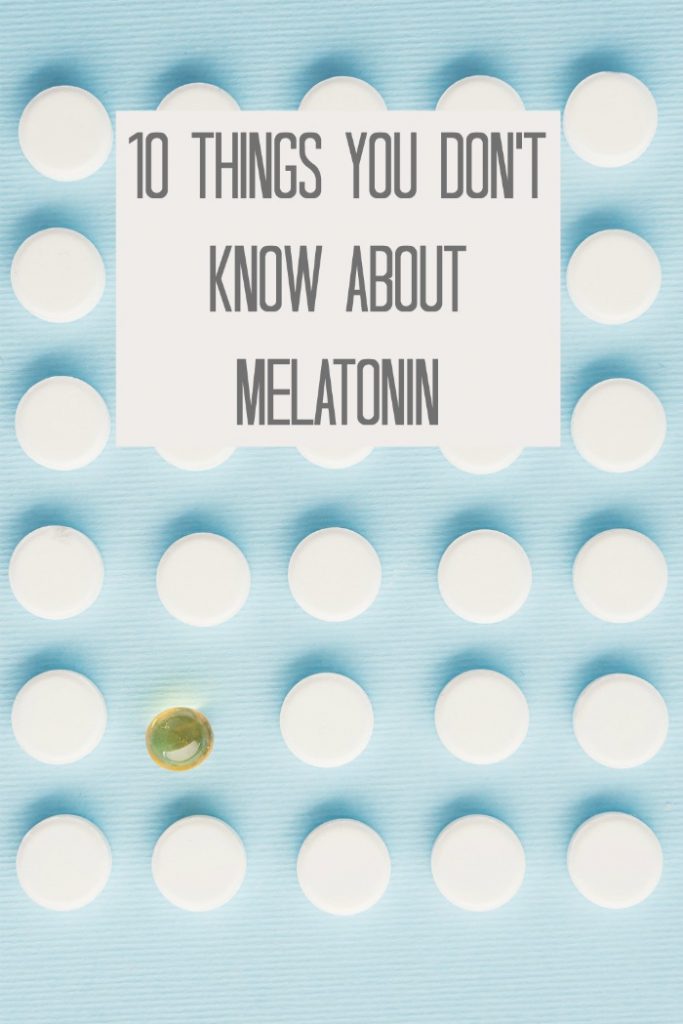
One of the things that is really commonly suggested to help sleep cycles is melatonin. I picked some up at the grocery store’s pharmacy aisle thinking it was all-natural and a safe solution. Thankfully for us, it didn’t help and we stopped using it almost immediately.
Thankfully, because I learned more about melatonin. My latest research was inspired by our partner, Maty’s Healthy Products, who wants to spread the word about what melatonin really is. They have made a conscious decision to only use pure, whole food ingredients like chamomile and nutmeg in their Nighttime Cough Syrups instead of melatonin. These ingredients help you relax and promote healthy sleep.
So, what did I learn about melatonin?
- Melatonin is a hormone produced by the body secreted by the pineal gland at the onset of darkness which helps trigger the sleep cycle (Melatonin).
- When melatonin is listed as an ingredient in products, it is a man-made synthetic version (Family Doctor).
- Hormones only work if your body doesn’t produce enough so dosing of melatonin is extremely important (Hopkins Medicine).
- The melatonin doses commonly sold in the supplement aisles can raise levels of the substance in the blood 30-fold higher than normal peak could be dangerous for some people (Scientific American April 1996).
- The amount of melatonin you are getting in one of these over-the-counter supplements might not even be what the label says. A study showed a variation from -83% to +478% (Journal of Clinical Sleep Medicine Feb 2017).
- If you take too much melatonin, you could actually suppress your body’s natural production. Dr. Wurtman describes this as “you won’t respond to the stuff you take…you won’t respond to the stuff you make” (Van Winkle’s December 2015).
- Melatonin can have side-effects like headache, short-term feelings of depression, daytime sleepiness, dizziness, stomach cramps, and irritability (WebMD).
- Because melatonin is labeled as a dietary supplement by the FDA, it doesn’t have to include warnings of overdose risk on their labels which is mandatory for drugs and hormones (FDA Dietary Supplements).
- Many people use melatonin for insomnia which is not recommended unless the type of insomnia is specifically due to delayed sleep-wake phase syndrome (UptoDate.com referring to Treatment of Insomnia in Adults). “Melatonin is a sleep and body clock regulator, not a sleep initiator (Doctor Oz 2012).”
- Many doctors are concerned that melatonin could alter hormones that “regulate puberty” which is why it isn’t recommended for children (US News October 2015). WebMD states it is “possibly safe” for children as a single dose and “possibly unsafe” when taken in multiple doses (Melatonin Side Effects).
I think my biggest surprise was that melatonin isn’t an all-natural supplement. It makes sense once I really looked into what it is, but I just assumed that was the case based on where it was sold and how it was packaged.

It is also a little shocking that despite my science background (I have my master’s degree in Physical Therapy which included some pharmacology training) and obsession with learning about things, I hadn’t run into much information about melatonin until I did this research.
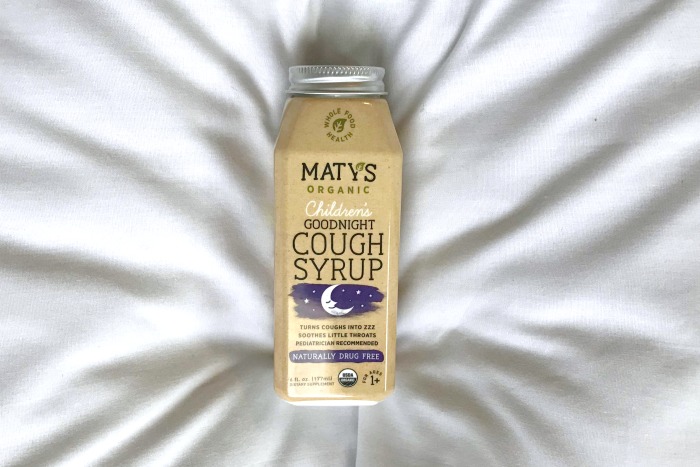
If you are looking for peaceful sleep without melatonin, check out these options from Maty’s that really are all-natural:
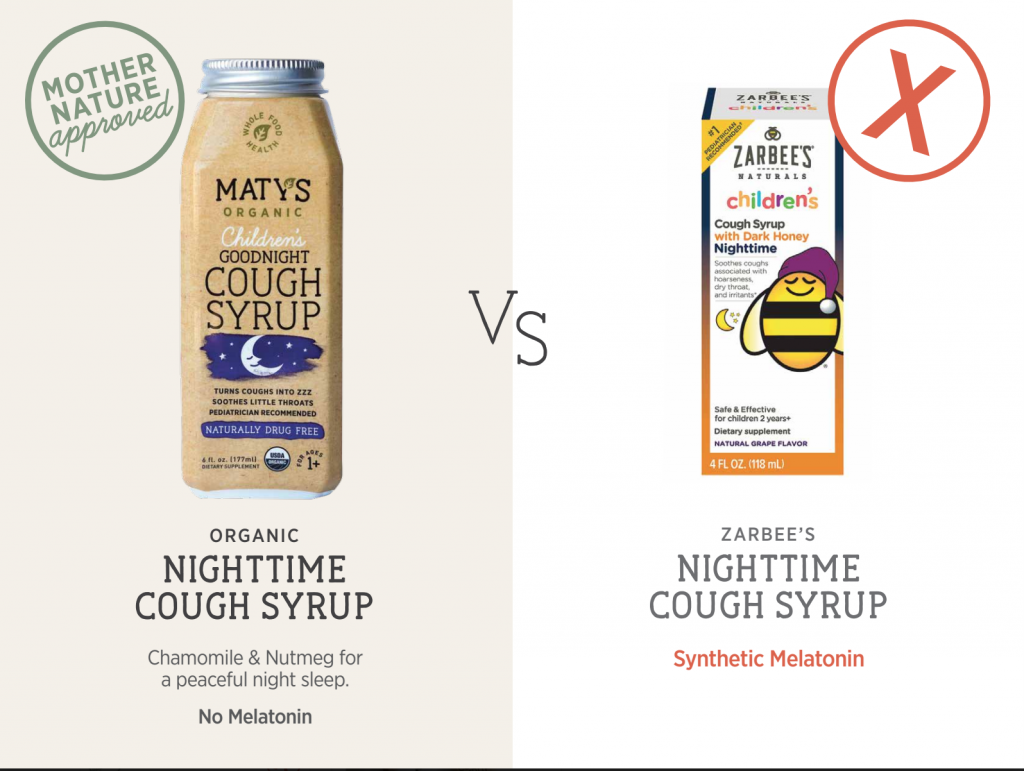
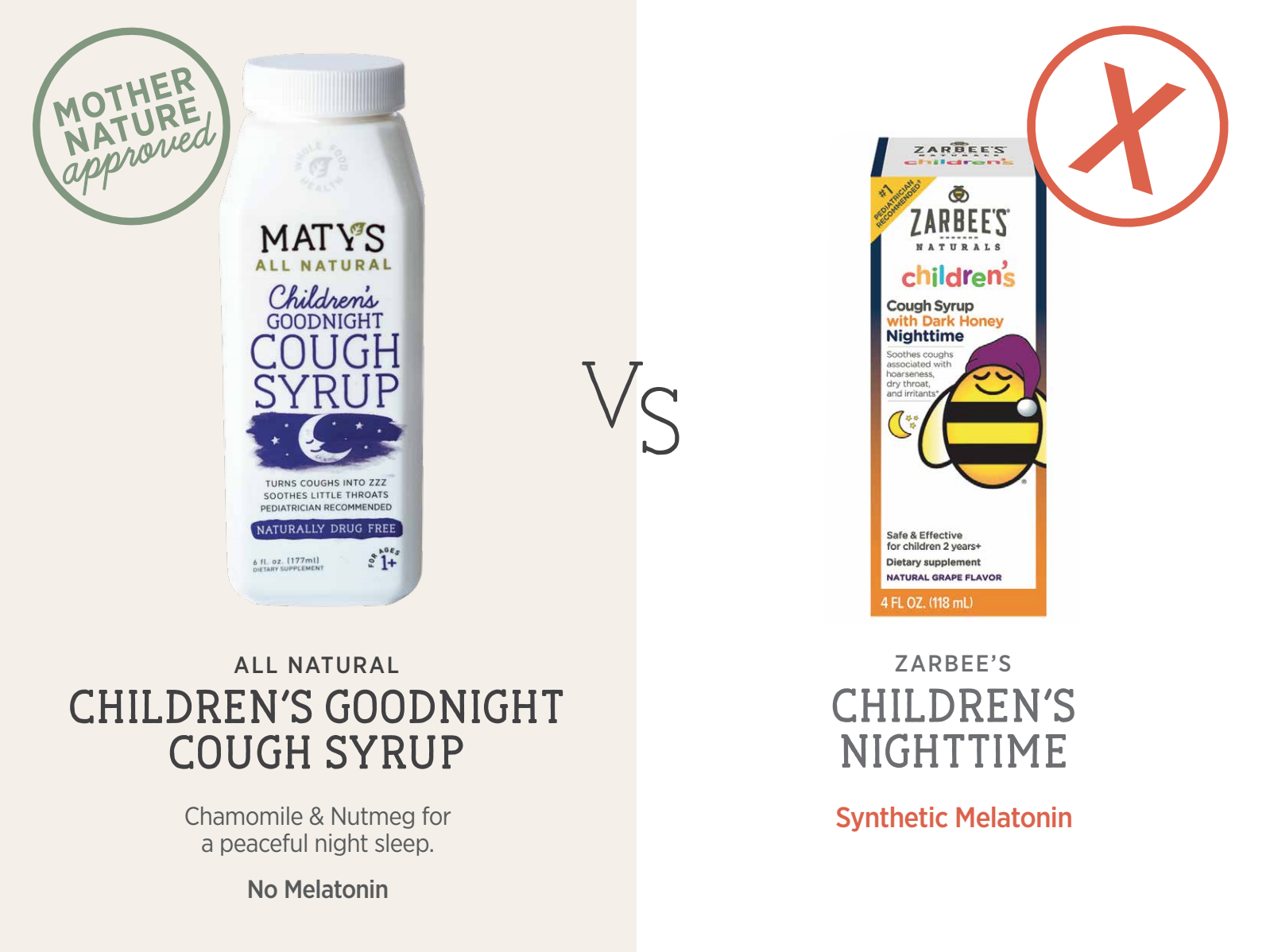
You can find more about Maty’s better alternatives by visiting their website and following them on FB and Twitter: @Matys.
More Healthy Hacks to Live Your Best Life:



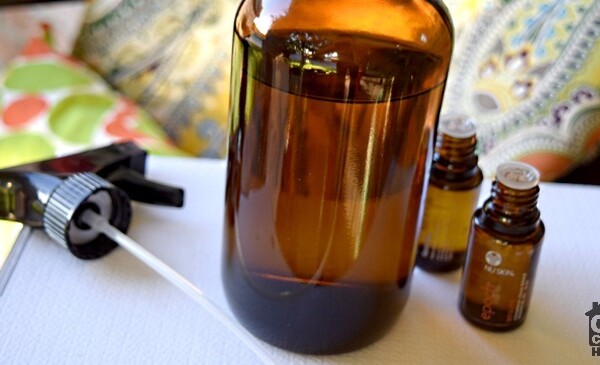




0